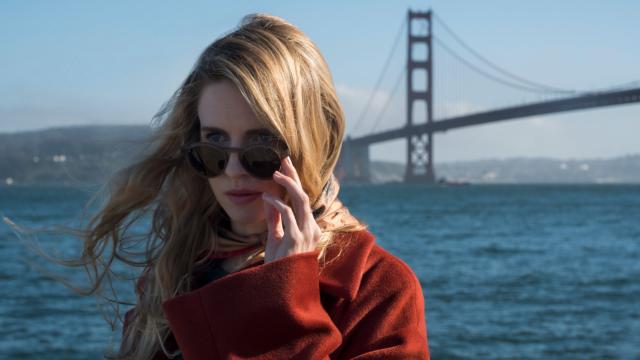One of the biggest criticisms of Brit Marling’s Netflix series The OA was the way that the story”people hopping across dimensions”placed more emphasis on emotional intelligence and the power of empathy (and, yes, interpretative dance), rather than “traditional” super-science and the kinds of action we’ve been conditioned to expect from sci-fi narratives.
Prairie, Marling’s character, is as resourceful and hellbent on her mission to discover the truth about the strange events happening around her as any action hero in a comic book movie, but what really sets her apart is the way she repeatedly uses her emotional intelligence to achieve her goals instead of punching or shooting her way through obstacles.
In a recent piece in the New York Times, Marling reflected on her path to Hollywood following her decision to leave Goldman Sachs, and how she came to realise that the worlds of banking and filmmaking aren’t all that different in terms of the ways that women are expected to conform to a narrowly defined set of ways of being that are considered acceptable.
After leaving Goldman Sachs behind at 24, Marling was disillusioned to find that she was only ever going out for parts for female characters who were so lacking in substance that they were essentially non-people. When Marling pivoted and began creating films of her own like Sound of My Voice and Another Earth, she found that suddenly, there were more opportunities for her to play leading women with charisma, drive, and ambition, but even still, there was something off about the roles.
“It would be hard to deny that there is nutrition to be drawn from any narrative that gives women agency and voice in a world where they are most often without both,” Marling wrote. “But the more I acted the Strong Female Lead, the more I became aware of the narrow specificity of the characters’ strengths”physical prowess, linear ambition, focused rationality. Masculine modalities of power.”
The truth of Marling’s statement can be seen in the symbols of female empowerment who’ve dominated at the box office in recent years, like Gal Gadot’s Wonder Woman and Brie Larson’s Captain Marvel, and the same can be said of newer films like Birds of Prey and the upcoming Black Widow. All of those women are heroes whose power is reflected in their ability to fight and blow things up with their massive superpowers, and while there’s absolutely nothing wrong with those characters being integral elements of our pop cultural moment, you can’t argue that they aren’t all of a very particular type.
These characters, Marling explained, neatly fit into a larger paradigm in which the very concept of femininity is still considered less than at best and anathema at worst, and when we celebrate strong female characters, we’re often celebrating the masculine parts of their identities.
“When we kill women in our stories, we aren’t just annihilating female gendered bodies. We are annihilating the feminine as a force wherever it resides”in women, in men, of the natural world,” she wrote. “Because what we really mean when we say we want strong female leads is: “˜Give me a man but in the body of a woman I still want to see naked.’”
What the industry needs, Marling believes, is a recalibration and a rise in the idea that both masculine and feminine energies are equally necessary and important aspects of the human experience that can and should be present in films if the creators want their characters to be at all interesting. What she’s advocating for isn’t just the presence of more women on the big screen, but for there to be an understanding that putting female characters into big flashy fights is not the same thing as giving them three-dimensional humanity beyond whether or not they’re romantically involved with one of their male counterparts.
It’s an idea that might sound wild to some, but it shouldn’t because it’s basic common sense, and if Hollywood took it to heart, it would make going to the theatre an infinitely more enjoyable experience.
